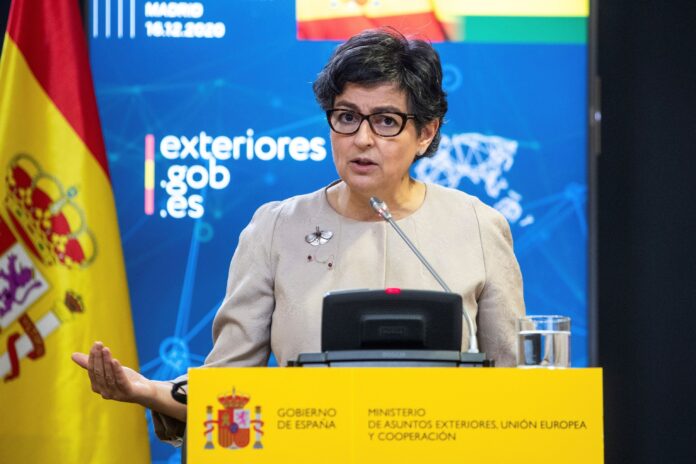Despite ending up before the judge, despite the fact that it cost her to be removed from the Government, “I would do it again.” Arancha González Laya reaffirmed the political decision that led the Government to welcome the Saharawi leader, Brahim Ghali, into Spain clandestinely, without passing border controls. After the judicial closure that the Provincial Court of Zaragoza made on Thursday of the Ghali case, the former Foreign Minister has been exonerated from any responsibility for the reception of the leader of the Polisario Front last year, when he was sick with Covid-19 and was transferred from Algeria to a hospital in La Rioja to be treated. Although “the humanitarian gesture”, in the words of Laya, ended up in court, she defends it because “it is the DNA of Spanish society”.
After this decision of the justice, in statements yesterday on Onda Cero, he argued that “it has always been very consistent and constant” in that Ghali’s entry was made for “strictly humanitarian reasons and in accordance with current legislation.” So that the shelving of the case has left her “very happy and satisfied”, since the Provincial Court of Zaragoza, in its first pronouncement on this subject, “has confirmed a version against the criteria of the investigating judge.” “It seems important to me because it clarifies and puts in its place the issues of a case that should never have happened.” Even so, he points out that “the place where this matter has to be resolved is not in a criminal court, but in parliament, which is where political decisions have to be debated” because, according to him, “a political explanation cannot turn into a criminal case. That same is the thesis defended by the Provincial Court of Zaragoza. “The separation of powers is fundamental in our democratic system.”
Through the statement published yesterday on Twitter, the former minister continued that it is a matter of concern that the work of “honorable public servants, diplomatic corps personnel, health, police and military personnel who did nothing more than comply with with its mission” and thanked the work of the State Attorney in recent months for the “good defense of the interests of the State”.
Laya ends by expressing her confidence that “all the people who have been investigated restore their reputation as soon as possible”, alluding to the Pegasus espionage of mobile phones of which she, other ministers and the Prime Minister have been victims, and in which suspicions point to Morocco, which considers Ghali enemy number one.
Conforms to The Trust Project criteria








